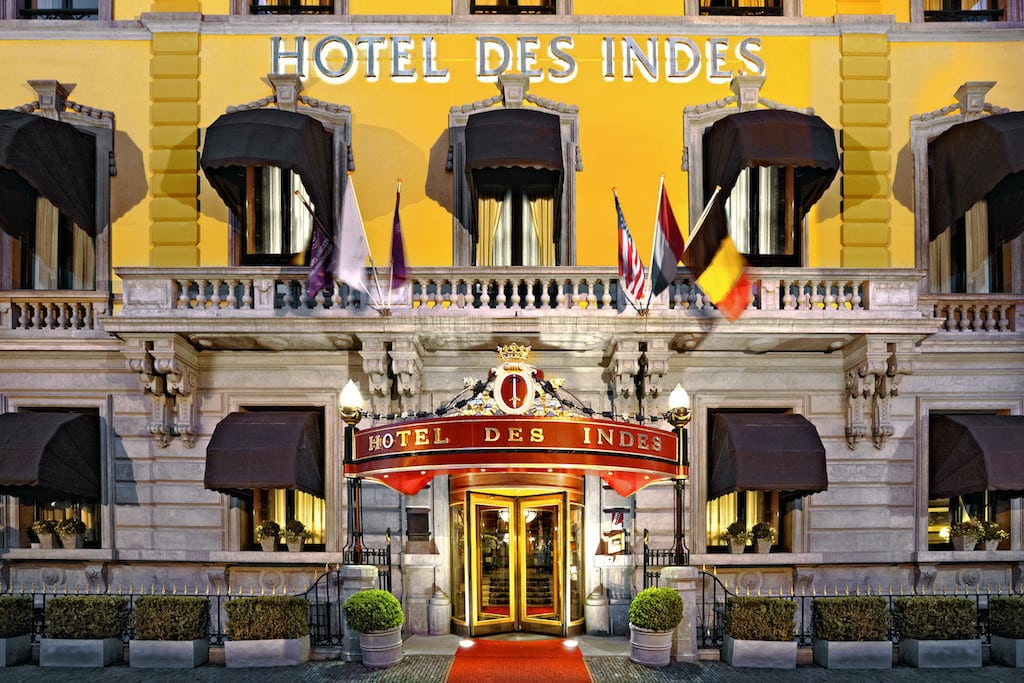Can Leisure Advisors Crack the Incentive Travel Market?

Skift Take
With incentive travel largely the domain of incentive houses and travel management companies, what chance does a small leisure travel agency have to compete for business? More than might be thought.
Incentive travel may actually be a logical fit for leisure agencies, particularly those focusing on luxury travel. Experts say that the nature of incentives are in sync with important trends driving high-end leisure travel: demand for customized, exclusive experiences and the shift away from commissions to fee-based revenue.
Outsourcing to the Rescue
While incentive travel, which is concerned with motivational business objectives rather than vacation needs, is more complex than leisure travel, streamlined technology, packages, and outsourcing services are making it more feasible for smaller agencies to handle.
“There’s no reason at all why a leisure travel agent, even a one-person shop, can’t do incentives — you just have to appreciate the different purpose,” said consultant Bruce Tepper, co-author of the Certified Incentive Specialist program, an online course for newcomers offered by the Society for Incentive Travel Excellence.
“The most common mistake is thinking that the trip is what it’s all about,” he said. “Incentives are all about encouraging improved performance. That has to come first.”
In other major differences, Tepper noted that incentive travel requires an extensive communications campaign to keep the potential participants motivated during the qualification process.
“You can’t just announce it. There needs to be an ongoing campaign to keep people interested and active,” he said. “Then there needs to be a way to measure the success of the program. Sometimes the client will want the incentive house to manage this part of it.”
Outsourcing is the solution for travel advisors who may not be equipped to handle all of the complexities required by incentives, according to Tepper.
“The biggest change in recent years is that now you can outsource just about everything you need to do, so in some ways it’s gotten easier for smaller agencies to handle incentives,” he said. “Technology has made it easier to measure the success of the program. You can do it with an Excel spreadsheet. There are companies that can provide you with a prepackaged communications campaign. There are also incentive packages available and websites for finding the best incentive destinations.”
small agency had momentum
Among leisure-focused agencies that have found success with incentive travel is Encompass the World Travel in Brunswick, Ohio, which won its first piece of business in 2003 by approaching an existing client, the vice president of a locally based tire company.
“He was surprised and said ‘I thought you only did trips to Mexico,’” said agency owner Bill Coyle. “We were only a four- or five-person agency at the time, but he allowed us to work and grow with him. We ended up handling an incentive trip for 250 qualifiers.”
Over the following years Encompass the World Travel expanded its incentive business, employing such tactics as developing a brochure and making a lot of cold calls to corporations. However, the momentum ground to a halt in 2009 after the recession hit and many companies sharply curtailed incentive travel because of budget cuts and concern with perception over frivolous spending.
“All of our clients cut out their incentive travel or switched to individual awards,” Coyle said. “The business didn’t really come back until 2015. Now we’re seeing good opportunities again.”
Despite the rebound, Coyle said the agency is cautious about becoming too reliant on the incentive side, which is currently 10 percent of its overall business.
“Because incentive business is so tied to the economy, I think it’s wise to have it be no more than 35 or 40 percent of your overall business,” he said. “Incentives are often the first thing to go if the economy goes south, so you can really get in trouble if you’re too dependent on it. Look at what’s happening with China right now. That could have an impact.”
Worth the Risk
Despite the potential risks, Coyle said the revenue potential of incentive travel is well worth pursuing for those advisors willing to put in the effort.
“It’s a higher commission product,” Coyle said. “Typically you are dealing with net rates, so you can set your commission based on the threshold of your company. Or you can add a fee and just make it fee-based. There’s a lot of different ways to handle it.”
In developing incentive business, Coyle said a major difference from leisure travel is that relying heavily on social media is not a good strategy.
“It’s not about setting up a website. It’s completely relationship driven,” he said. “The incentive client is really on the line if the agency doesn’t deliver the trip. They are taking a big risk, so there has to be a lot of trust.”
Coyle has found it beneficial to personally escort the incentive trip. “It’s a great way to build new business for your agency,” he said. “You’re spending quality time with your client and you can also make new clients among the participants.”
While designing a successful incentive trip means providing VIP experiences and a sense of exclusivity, Coyle noted that this is not unlike what advisors are increasingly called on to do for their leisure clients.
“Incentive travel is in line with what’s happening in leisure travel,” Coyle said. “Our leisure clients now want private transfers, upgraded seats, upgraded rooms, and staterooms. The expectations for travel are higher than they’ve ever been. Everyone wants that customized, concierge-level treatment.”




